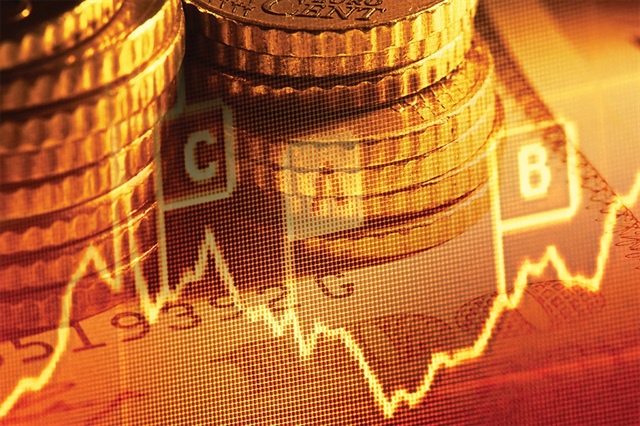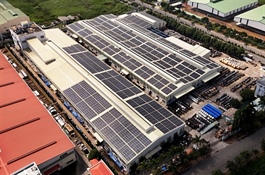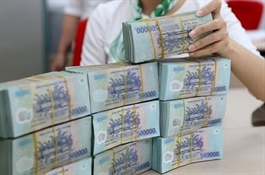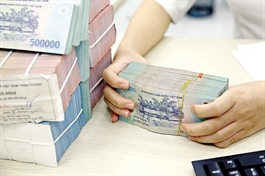Digital transformation policy clarity opens door for blockchain hub target
Digital transformation policy clarity opens door for blockchain hub target
Vietnam is positioning itself as Asia’s next blockchain hub, especially in the digital asset economy, backed by new regulations and strong investor confidence.
The Conviction 2025 event, held on August 9–10 in Ho Chi Minh City, was one of the largest blockchain technology programmes ever organised in Vietnam. It featured dozens of discussions on legal frameworks, technology, and a positive outlook for the country’s blockchain industry.

Vietnam has now clearly defined cryptoassets as a legitimate form of digital property, Photo: Shutterstock |
Vy Le, co-founder of Do Ventures, believes that newly implemented regulations will make institutional investors more comfortable when making funding decisions and investing in potential blockchain platforms.
“Additionally, mechanisms may also become more accessible,” Le said. “This is an opportunity for the entire industry to grow sustainably.”
At a workshop two weeks ago at the National Innovation Centre, Nguyen Thanh Tuyen, deputy director general of the Department of Information and Technology Industry under the Ministry of Science and Technology, stated this is the era where data is considered the “oil” of the digital economy. Every transaction, interaction, and process is being digitised at a rapid pace.
“In this context, blockchain has emerged as a foundational digital infrastructure capable of creating digital trust, an essential condition for the sustainable, transparent, and efficient operation of the modern economy,” he said.
Vietnam has clearly identified its priority areas for blockchain development, including network infrastructure, digital assets and cryptocurrencies, traceability, and the application of smart contracts for public administration and production.
Of these, digital asset is part of a global shift, with many reputable institutions are choosing cryptocurrencies or stocks in this sector to diversify their portfolios.
According to the Vietnam Blockchain Association (VBA) and data from Chainalysis, around 60 per cent of cryptoassets in Vietnam are traded on centralised exchanges, while the remainder is worked on decentralised exchanges or peer-to-peer platforms.
Thuat Nguyen, founder and CEO of Kyros Ventures, said, “Over the past 10 years, the market has grown rapidly despite a lack of policy support. Vietnam is often in the top countries for digital asset adoption and decentralised finance products. Young Vietnamese are tech-savvy, enthusiastic, and have been highly successful with digital asset products.”
Digital assets represent a financial revolution, redefining ownership and the flow of value in the digital world, he added. Vietnam, with its demographics, low operating costs, and technological capabilities, is fully equipped to become a central player in this space.
Nguyen Duy Hung, chairman of SSI Securities Corporation, said that for foreign investors, the factors of open technology policies and a dynamic population are enough to garner trust. These advantages are rare in neighbouring markets like Thailand, Singapore, and Indonesia. Moreover, Vietnam also boasts significantly lower operational costs.
“In Vietnam, a blockchain startup can survive up to 10 times longer than in Singapore with the same amount of capital,” he said.
Despite its enormous potential, the digital asset sector carries many risks, from fraud and cybercrime to market instability. Establishing a clear legal framework is essential to both manage risks and promote innovation, experts said.
In June, the National Assembly approved the Law on Digital Technology Industry, which will take effect in January. This is Vietnam’s first legal document to clearly define cryptoassets as a legitimate form of digital property, which can be created, issued, stored, and transferred via digital technology.
The law also makes an important distinction that digital assets are not currency and cannot be used as a means of payment, reaffirming that VND issued by the State Bank of Vietnam is the only legal currency. This both protects monetary sovereignty and legally opens the door to the digital asset industry.
The law also mandates standards for information security, anti-money laundering, counter-terrorism financing, and capital flow control, aligning with international best practices in digital asset regulation.
Tran Dinh, a representative from the VBA, said that while traditional fundraising channels such as banks and stock markets face pressure, capital is increasingly flowing into digital assets and cryptocurrencies, described as an immense shadow economy.
The total estimated value of digital asset-related transactions in Vietnam over the past year reached $100–120 billion. In 2023, Vietnam ranked third globally in digital asset investment profits, earning approximately $1.2 billion, trailing only the US and the United Kingdom.
“Improving legal regulations will help Vietnam attract massive foreign investment into fintech, driving economic growth, igniting a wave of startups, and nurturing the local digital technology ecosystem,” he said.
A draft resolution on the pilot digital asset market made by the Ministry of Finance, expected to be submitted to the government this month, allows the establishment of companies offering digital asset services, operating exchanges, and issuing tokens with a minimum capital requirement of VND10 trillion ($4 billion), even higher than that for commercial banks.
Furthermore, the draft outlines strict Level 4 cybersecurity standards, applicable to all participants, from token issuers to exchange operators. This is key to ensuring user trust.
“I believe the future lies not in choosing between traditional method and blockchain technologies, but in combining both of them responsibly and transparently,” said Hung from SSI. “With an improved legal framework, ready human resources, and investor confidence, Vietnam’s path to becoming Asia’s digital asset hub is feasible.”
- 12:46 26/08/2025


























